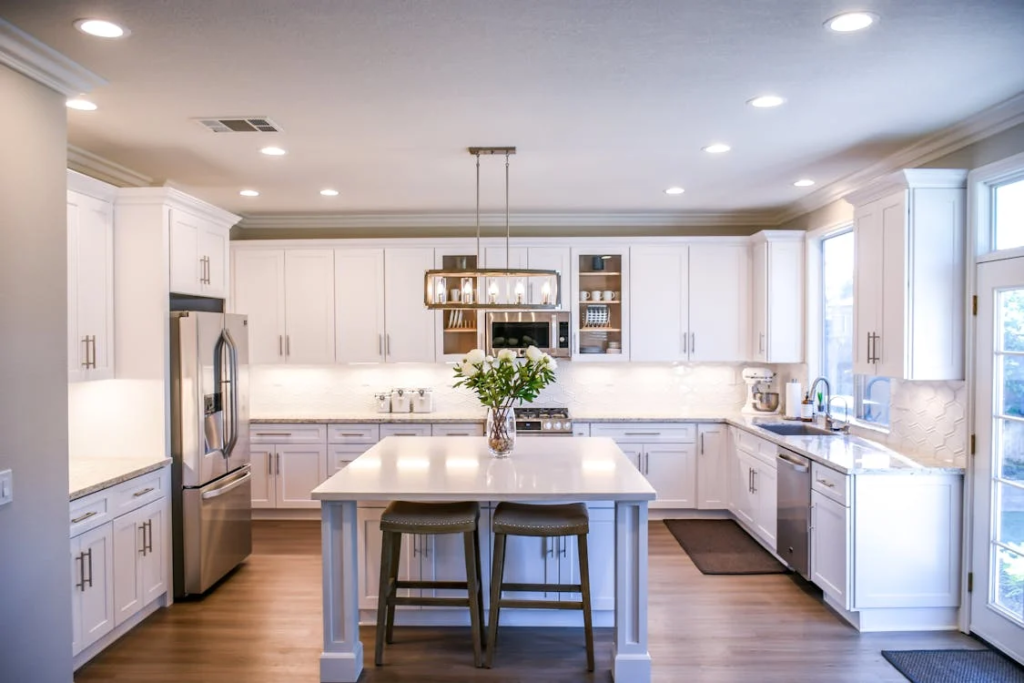Open houses have long been a staple in the world of real estate, but do they actually help sell homes? In this article, we will explore the concept of open houses, weigh the pros and cons, examine their impact on home sales, discuss alternatives, and gather expert opinions on whether open houses are truly effective in selling homes.
Understanding the Concept of Open Houses
Open houses are typically organized by real estate agents to showcase a property that is currently on the market. They provide an opportunity for potential buyers to view the property in person, without the need for a scheduled appointment. Open houses are often advertised in various ways, such as online listings, flyers, and signage.
One interesting aspect of open houses is that they not only allow potential buyers to see the property firsthand but also give them a feel for the neighborhood and surrounding amenities. This can be particularly beneficial for buyers who are new to the area or are looking to move to a different part of town. Open houses provide a more immersive experience compared to online listings, as visitors can explore the layout of the property and envision themselves living in the space.
The Purpose of Open Houses
The primary purpose of an open house is to attract potential buyers and generate interest in the property. By opening up the home to a wider audience, sellers hope to increase their chances of selling the property quickly and at a favorable price.
Open houses create a sense of urgency among potential buyers, as the event is typically held for a limited time. This can lead to competitive situations where multiple buyers express interest in making an offer, potentially driving up the final sale price. The buzz and excitement surrounding an open house can create a positive atmosphere that benefits both sellers and buyers.
The Process of Organizing an Open House
Organizing an open house involves careful planning and coordination. In preparation for the event, sellers and their agents stage the property to make it visually appealing and inviting. They may also provide refreshments and informational materials about the property and its features.
During the open house, the real estate agent or a representative is present to greet visitors, answer questions, and provide additional information about the property. Interested buyers may fill out contact forms or leave their details for follow-up.
Moreover, the success of an open house often depends on the marketing strategies employed by the real estate agent. In addition to traditional methods such as flyers and signage, agents may utilize social media platforms and online real estate portals to reach a wider audience. By creating engaging content and virtual tours, agents can generate buzz and attract more visitors to the open house, increasing the likelihood of finding a potential buyer.

The Pros and Cons of Open Houses
While open houses have their advantages, they also come with potential drawbacks. Let’s take a closer look at both sides of the equation.
Benefits of Hosting Open Houses
One of the main benefits of hosting an open house is the opportunity to attract a large number of potential buyers in a short period of time. By allowing multiple visitors to view the property at once, sellers can create a sense of excitement and competition.
Open houses also provide an excellent chance to showcase the property’s unique features and highlight its appeal. Buyers can see the layout, space, and amenities firsthand, which can be more impactful than just viewing photos online.
Open houses can attract curious neighbors who may spread the word about the property to their friends or family members who are in the market for a new home. It’s not uncommon for open houses to result in referrals and word-of-mouth recommendations.
Additionally, hosting an open house can give sellers an opportunity to gather valuable feedback from potential buyers. This feedback can help sellers understand what aspects of the property are most appealing and what improvements could be made to increase its marketability.
Potential Drawbacks of Open Houses
Despite their potential benefits, open houses have some drawbacks that sellers should consider. One of the main concerns is the risk of allowing strangers into the property. While measures are usually taken to ensure security, theft or damage is always possible.
In addition, open houses can attract unqualified buyers who may waste the seller’s time or have no genuine interest in purchasing the property. These individuals may simply be seeking design inspiration or comparing prices in the market.
Open houses also require significant time and effort to organize, both on the part of the seller and the real estate agent. This investment of resources may not always yield the desired results, especially if the property is not well-suited for open house events.
Hosting an open house can be emotionally draining for sellers, as they have to constantly keep the property in pristine condition and be prepared for potential criticism or negative feedback from visitors.
Lastly, open houses can sometimes lead to a lack of privacy for the seller. With numerous people walking through the property, it can feel invasive and intrusive, especially for those who value their personal space.

The Impact of Open Houses on Home Sales
Now that we have explored the concept and benefits of open houses, let’s delve into their actual impact on home sales.
Open houses have been a longstanding tradition in the real estate industry, offering a unique opportunity for potential buyers to immerse themselves in a property. Beyond just viewing photos online or taking a virtual tour, open houses provide a tangible experience that can evoke emotions and create a lasting impression. The ambiance, lighting, and overall feel of a home during an open house can greatly influence a buyer’s perception and connection to the property.
How Open Houses Influence Buyer Decisions
Open houses can play a role in influencing buyer decisions. For some potential buyers, the opportunity to see a property in person is crucial in determining if it meets their needs and preferences. Walking through the rooms, experiencing the layout, and visualizing themselves living in the space can significantly impact their decision-making process.
Moreover, open houses may create a sense of urgency among buyers. The fear of missing out on a desirable property can prompt them to act quickly, potentially resulting in a faster sale.
Additionally, open houses can attract not only serious buyers but also curious neighbors, local investors, and individuals who may not be actively looking to purchase a home but are drawn in by the open house signage. This diverse mix of attendees can create a buzz around the property and increase its visibility within the community.
Open Houses and Home Selling Prices
There is ongoing debate in the real estate community regarding the impact of open houses on home selling prices. Some argue that open houses can generate competition, leading to multiple offers and ultimately driving up the selling price.
On the other hand, skeptics believe that open houses may attract bargain hunters looking for a deal. These buyers may use open houses to negotiate a lower selling price, potentially resulting in a lower final sale price.
Alternatives to Open Houses
While open houses have been a traditional way to showcase properties, some alternatives may be worth exploring.
When considering alternatives to open houses, it’s important to consider potential buyers’ preferences and needs. One option is private showings, allowing individuals or smaller groups to view the property more personally. This approach can particularly appeal to buyers who value privacy or have specific scheduling constraints, as it offers a more intimate and flexible experience.
Private Showings and Virtual Tours
Private showings allow potential buyers to view the property individually or in smaller groups, providing a more personalized experience. This approach can be beneficial for those who prefer a more intimate setting or have specific scheduling constraints.
Virtual tours, on the other hand, offer a convenient way for buyers to explore a property from the comfort of their own homes. With advancements in technology, virtual tours can provide an immersive experience, allowing buyers to virtually walk through the property and view it from various angles.
For sellers looking to expand their marketing reach, exploring strategies beyond open houses can be highly effective. Professional photography can showcase the property in its best light, capturing the attention of potential buyers. Targeted online advertising and social media campaigns can help reach a wider audience, increasing exposure and generating interest in the property. Engaging property descriptions can also play a crucial role in attracting buyers, highlighting the unique features and selling points of the home.
Marketing Strategies Beyond Open Houses
Real estate agents and sellers can utilize various marketing strategies to increase exposure and attract potential buyers. These strategies may include professional photography, targeted online advertising, social media campaigns, and engaging property descriptions. By leveraging these tools effectively, sellers can create interest without necessarily relying solely on open houses.
Expert Opinions on Open Houses
Now that we have examined open houses, their impact on home sales, and alternatives, it’s essential to gather insights from experts in the real estate industry.
Real Estate Agents’ Views on Open Houses
Opinions among real estate agents regarding the effectiveness of open houses can vary. Some agents believe that open houses are a valuable marketing tool that can generate leads and attract serious buyers. They argue that the exposure and face-to-face interactions can be instrumental in closing deals.
Others, however, are more skeptical and question the return on investment of open houses. They argue that high-quality online listings, targeted marketing, and personalized showings are often more effective in selling homes. These agents advocate for tailoring marketing strategies to individual properties and target audiences.
Home Sellers’ Experiences with Open Houses
Home sellers’ experiences with open houses also vary. Some sellers attribute the successful sale of their property to an open house, while others felt that the resources invested in organizing the event did not translate into a significant advantage.
Some sellers value the opportunity to receive feedback and gauge potential buyers’ level of interest at open houses. This feedback can help them make necessary adjustments, such as pricing or staging changes, to attract the right buyer.
Conclusion
Open houses play a role in the real estate market, but their effectiveness in selling homes is subjective. While they can help attract potential buyers, generate excitement, and have an impact on buyer decisions, they are not the only path to a successful sale.
Considering the potential benefits and drawbacks, sellers should assess their specific circumstances, consult with their real estate agents, and explore alternative marketing strategies that can complement or replace open houses. By adopting a proactive and targeted approach to showcasing their properties, sellers can increase their chances of finding the right buyer at the right price.






